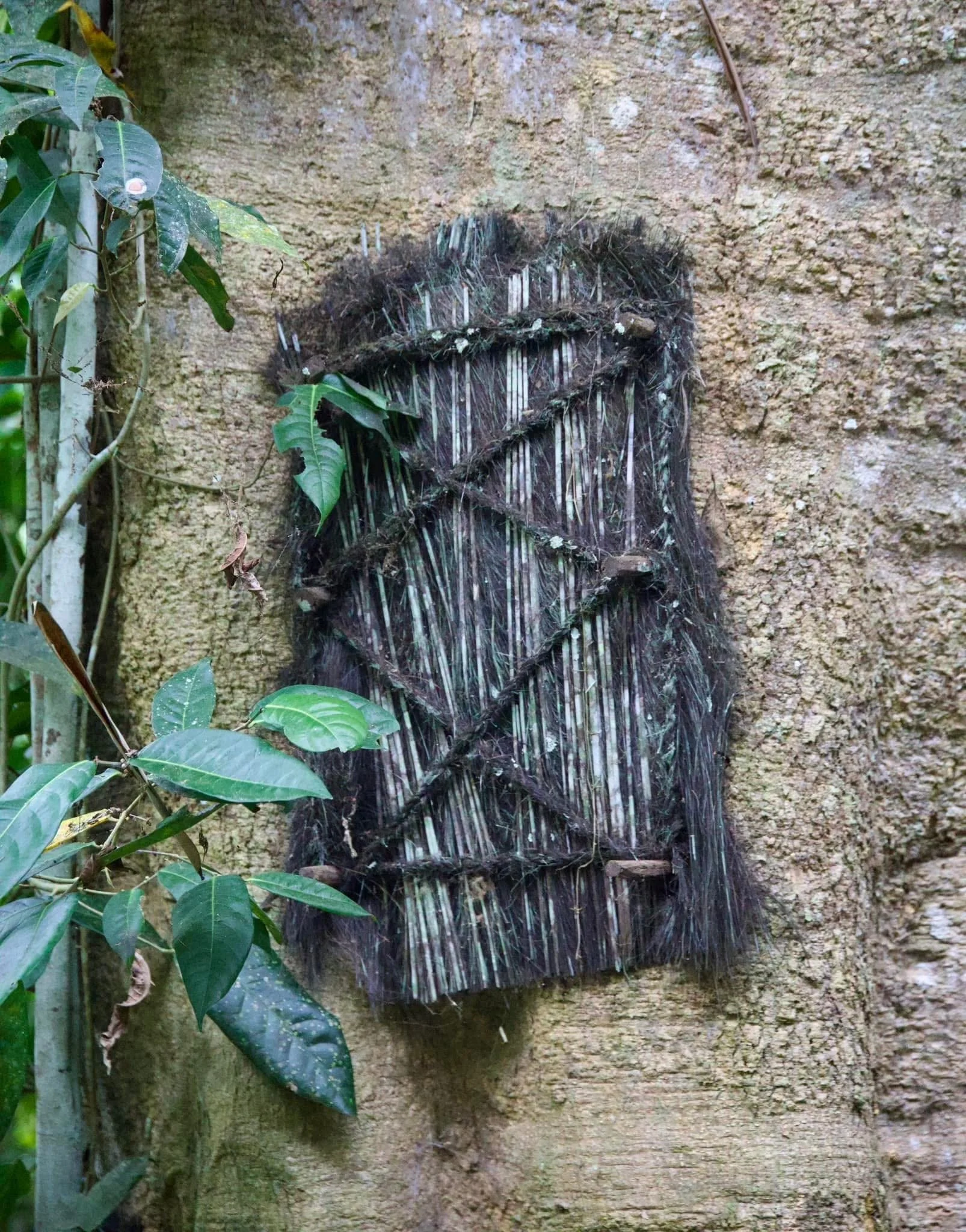The Sacred Passiliran and Tree Burials
The Passiliran, or Baby Grave Tree, is a sacred burial site in Kambira Village, Toraja, rooted in the Torajan animistic practices and beliefs. This beautiful, peaceful, sacred site honours infants who passed away before teething, seen as pure souls meant to return to nature. The tradition of placing these infants in the hollow of a living tree is both a spiritual and physical act of returning the child to the earth, where they are believed to continue their growth.
A Tree That Nurtures the Dead
In Toraja, the Passiliran burial site is typically in a Tarra tree, which is considered a second mother to the infant. The belief is that the tree protects and nurtures the child, even in death. The sap of the tree is thought to be the baby’s new mother’s milk, offering sustenance for its journey beyond life. This practice is deeply symbolic, as the tree's position in the natural world represents the child’s journey toward the afterlife, while also linking them to the cycles of life and growth.
The baby’s body is placed in a fetal position, sitting up, to represent the child’s continued growth, symbolising that death does not mark the end but rather a transformation. One of the key aspects of the burial ritual is that the baby’s feet are placed away from the family home, as it is believed that the spirit should not return to disrupt the household's peace.
The Spiritual Rules of the Passiliran
Strict customs surround the Passiliran burial practice. For one, the baby must be placed in the tree within 24 hours of death. This practice emphasises the urgency of returning the child to nature, in alignment with the Torajan belief in the natural world’s importance in the spiritual process of death. Additionally, only babies without teeth are buried in the tree. Once an infant grows its first tooth, it is considered to have reached a stage of maturity and is buried in a regular grave.
The ritual surrounding the death of a baby is also unique in comparison to other Torajan funerals. Unlike other burials where buffalo are sacrificed to guide the deceased to the afterlife, the death of a baby does not require the sacrifice of a buffalo, as it is believed the baby is still growing and does not need guidance. Instead, a pig is slaughtered at the burial site, and all the meat must be consumed there. It is considered taboo to bring any meat or offerings back to the family home, reflecting the sacredness of the burial site.
A Dying Tradition
Unfortunately, the Passilliran practice is becoming less common. With the spread of Christianity and the influence of modern funerary practices, many Torajans no longer follow this sacred tradition. However, for those fortunate enough to witness it, the Passilliran offers a profound insight into the Torajan worldview. It shows how death and life are part of a continuous cycle of growth, interconnected with nature.
While fewer people may continue to practice tree burials, the Passilliran remains a stunning representation of the Torajan belief system, where death is seen as part of a greater spiritual journey. It is a beautiful reflection of the belief that the spirits of the deceased are forever connected to the natural world, with the living tree offering comfort, growth, and protection even after death.





